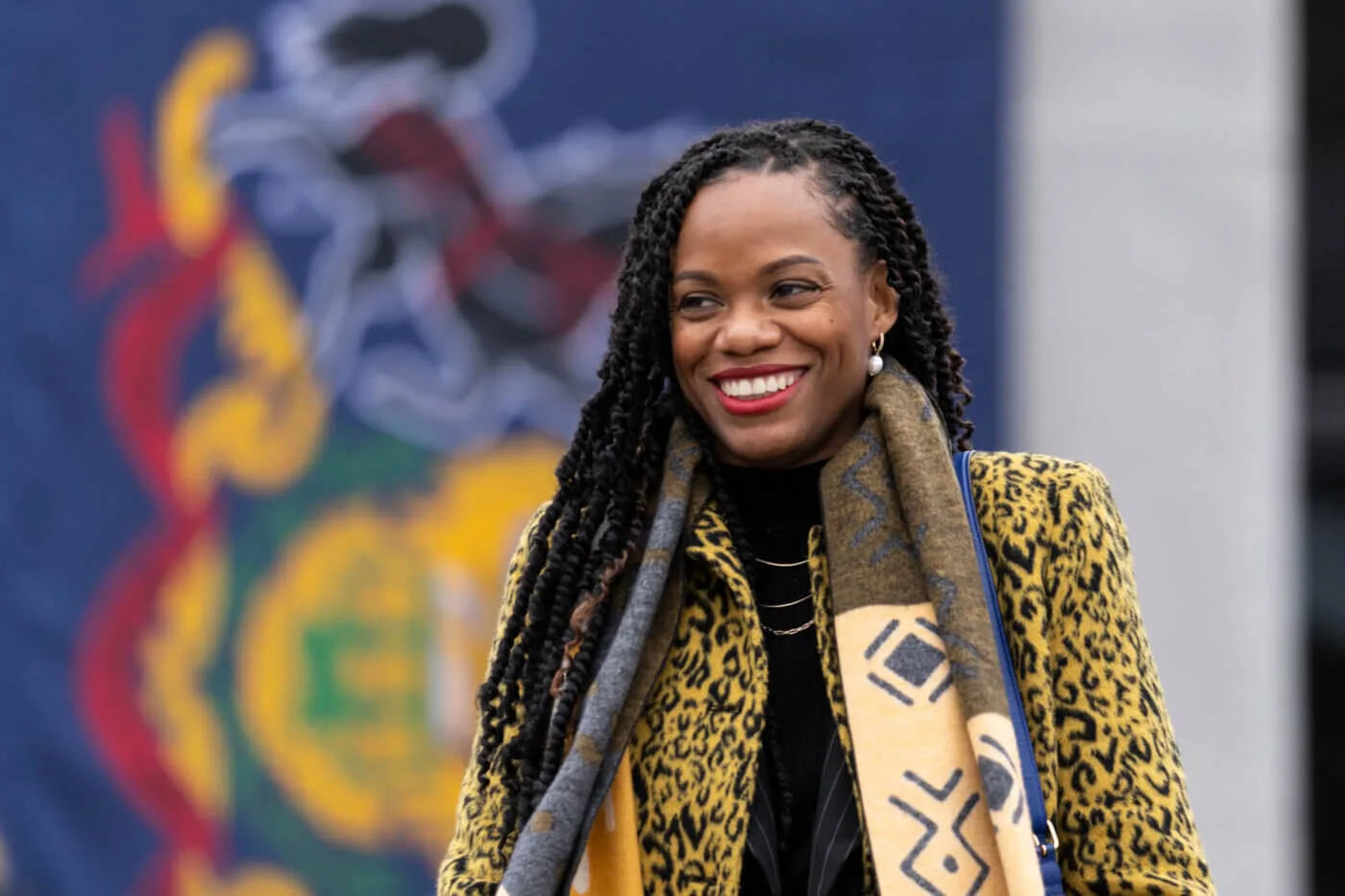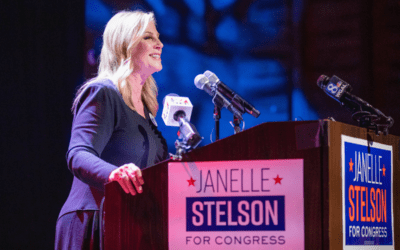
Rep. Summer Lee, D-Pa., arrives for Democratic Gov. Josh Shapiro's Inauguration, Tuesday, Jan. 17, 2023, at the state Capitol in Harrisburg, Pa. (AP Photo/Matt Rourke)
As the first Black woman to represent Pennsylvania in the US House, Summer Lee feels a responsibility to give voice to other minorities. One way to do that: letting her constituents know they have more power to effect change than they realize.
Summer Lee’s election to the US House last November was historic, as the Braddock native became the first Black woman to represent Pennsylvania in Congress by defeating Republican candidate Mike Doyle. Her victory helped Democrats gain a 9-8 edge in Pennsylvania’s newly redrawn House map.
It wasn’t the first time Lee made history. Lee became the first Black woman to represent southwest Pennsylvania in the state Legislature when she was elected to represent the 34th District in the state House in 2018.
While acknowledging the significance of these victories, Lee said the history she’s made points to systemic inequalities and a lack of representation for large groups of people.
“We still have several states that haven’t had a black woman represent them,” Lee said. “All over this country, there are Black women, queer women, queer folks, trans folks, poor working-class folks who have never had representation in our federal government. Which means [I have] a responsibility to not just serve honorably the people of (Allegheny and Westmoreland counties), but to also keep in mind the thousands of Black women throughout the commonwealth who are relying on my voice, my advocacy, my perspective, [and] the thousands of working-class people who are doing the same.”
We spoke with Lee about her historic win, what influenced her to run for office, and the importance of Pennsylvanians becoming involved in the political process — not just during election season, but every day.
This conversation was edited for clarity and length.
What does it mean for you to be the first Black woman to represent Pennsylvania in Congress?
It means that our country still has a really long way to go. The fact that we are still achieving “firsts” is something that we need to be more open and honest about. There are people in 2023 who still don’t understand how important it is that marginalized people have representation — folks who understand their experiences [and] who have lived life and navigated life the way that they have.
Before you were elected to the State House, you were an organizer in Pittsburgh. How did that work influence you to run for office?
I started to organize around the need to empower communities around not just voting but also identifying their own candidates.
It felt like there was no one who was talking about how racism and inequality were cyclical. We have crime because we have inequality, because we have poverty that’s concentrated, because we were redlined and there were housing policies that restricted Black folks from being able to move into other communities. Those same [marginalized] communities were sitting right next to pollutant[s] — the water that has lead in it [or] the factory that is emitting toxic waste into the air.
We needed people who could talk about that. We needed people who would go to the appropriate levels of government and actually legislate with that in mind. I was hoping to find people who could do that. And then I found myself in that process.
What should be done to make sure that the government actually works for people?
We call ourselves a democracy, but in reality, we’re a striving democracy. We are striving towards democracy because as long as we have people who are not functionally represented in our government, then we are not the democracy that we need to be. There are many ways that folks are disenfranchised. There are folks who are legally disenfranchised because they had a felony conviction at one point in their lives. Pennsylvania is one state where if you’ve had a felony conviction, you can never run for public office.
We can address gerrymandering, which functionally disenfranchises people [and] keeps people from having hope in the system.
We need to talk about money in politics. Pennsylvania is a state where there is no limit to what someone could give a [state-level] campaign. A person could write a personal $1 million check and a candidate for state House could take it, a candidate for county executive could take it.
[People] can buy seats in that way; it keeps Black, brown, working-class, [and] marginalized people out of the political arena. We can’t compete because systemically we don’t have the networks, the pockets, and the mentorship to actually get into politics. If we want to have a democracy that reflects the fullness of the American population, then we need to think differently.
What would you say about politics to people who don’t necessarily follow politics or read the newspaper every day?
Embrace your power. We have power in our community, our solidarity, and our numbers. Your power can be in helping to register voters and politicizing people [whose] whole lives are political, but they don’t have language to the ways in which it’s political. There are so many people who say, “I’m not political,” but they breathe toxic air. Or their students go to schools that are underfunded, or their bridges and roads are not being repaired. Or the jobs aren’t in their communities, or the wages aren’t increasing, or their union is being busted, or the bus route has been cut. All of those things are politics.
[But] your politics shouldn’t just be voting. There are politicians who hope that the only thing we do with politics is vote, and then we tap back out for two or four years. But the reality is that someone who cares and who is fighting for you wants to [work] with you. We want to hear from you. We want to learn from you. We want to understand your needs. We want to get your voice right. We want to take your voice into spaces where your voice has typically not been. We want your help — we want you to empower us to be able to do that.

For Rep. Susan Wild, supporting PA families includes reproductive rights and much more
Rep. Susan Wild wants to be very clear with Pennsylvanians: Donald Trump is committed to taking away women’s reproductive freedom, but he is not...

School districts working with anti-LGBTQ groups can cost your kids’ schools millions
Parents across South Central Pennsylvania are worried about the potential financial impacts working with anti-LGBTQ groups may have on their school...

VIDEO: Trump distances himself from his anti-abortion views
Donald Trump appeared on WGAL on Tuesday and continued to distance himself from his anti-abortion views claiming that reproductive rights are now a...

VIDEO: Community pushback gets school board to rescind decision on denying gay actor’s visit
Cumberland Valley School Board offered a public apology and voted to reinstate Maulik Pancholy as a guest speaker a week after the board voted to...

VIDEO: Project 2025 brings nuclear armageddon back into vogue
Project 2025 is a titanic document, with plans ranging from cutting half of all government employees to targeting reproductive rights on a scale...





